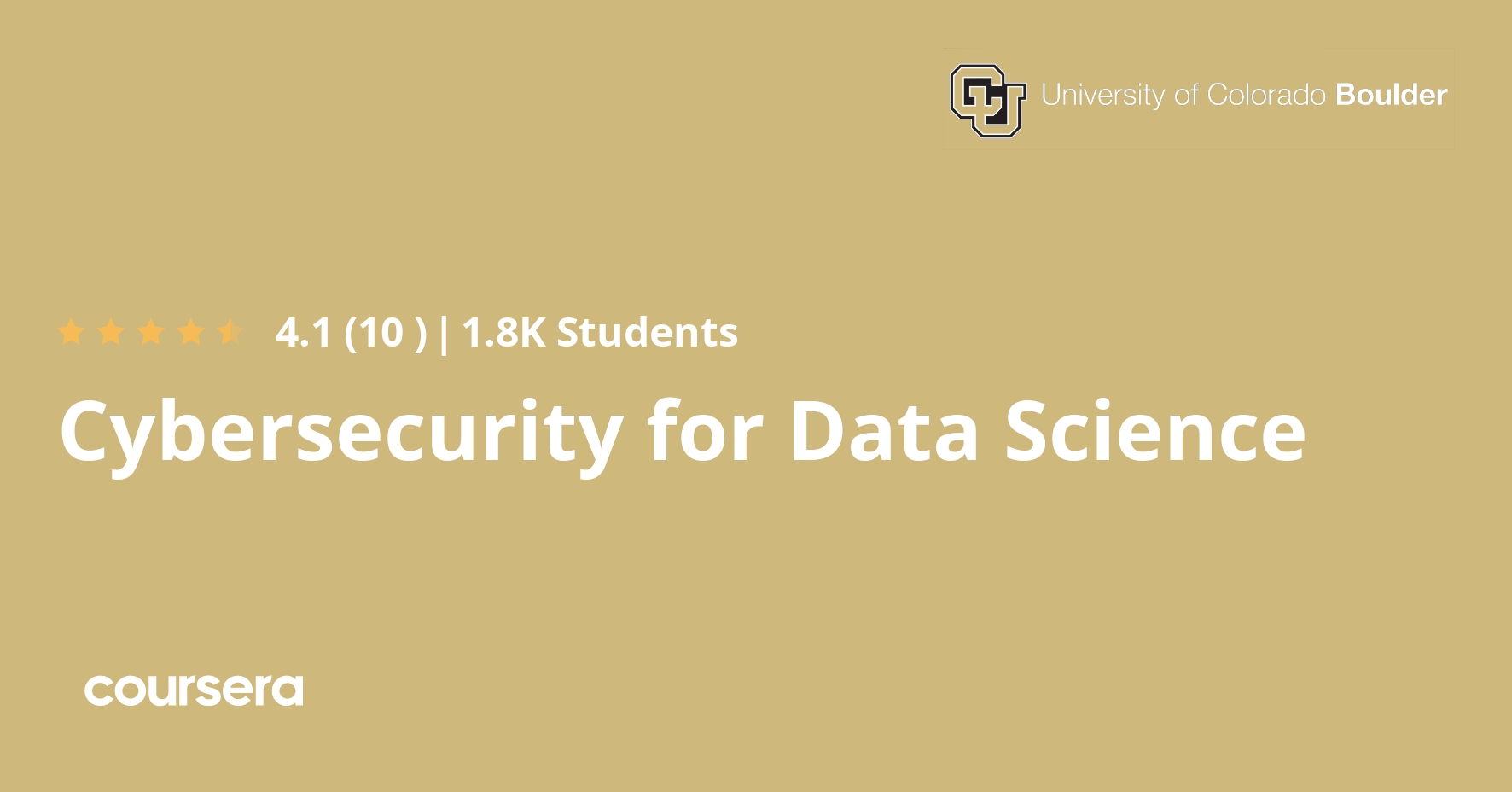Description
This course aims to help anyone interested in data science understand the cybersecurity risks and the tools/techniques that can be used to mitigate those risks. We will cover the distinctions between confidentiality, integrity, and availability, introduce learners to relevant cybersecurity tools and techniques including cryptographic tools, software resources, and policies that will be essential to data science. We will explore key tools and techniques for authentication and access control so producers, curators, and users of data can help ensure the security and privacy of the data.
This course can be taken for academic credit as part of CU Boulder’s Master of Science in Data Science (MS-DS) degree offered on the Coursera platform. The MS-DS is an interdisciplinary degree that brings together faculty from CU Boulder’s departments of Applied Mathematics, Computer Science, Information Science, and others. With performance-based admissions and no application process, the MS-DS is ideal for individuals with a broad range of undergraduate education and/or professional experience in computer science, information science, mathematics, and statistics. Learn more about the MS-DS program at https://www.coursera.org/degrees/master-of-science-data-science-boulder.
What you will learn
Basic Cybersecurity Concepts and Principles
In this module, you will learn the basics of cybersecurity and the CIA triad.
Your Cyber Story and Your Public Data Profile
In this module, you will explore your Cyber Story and examine your pubic data profile
Wifi, IoT, Hacking, Data Breaches and Social Engineering
This module explores the world of hacking, IoT and social engineering.
The Ethics of Cyber Security
This session students will leverage social media to connect with cybersecurity experts and explore the ethics around cybersecurity and data.




